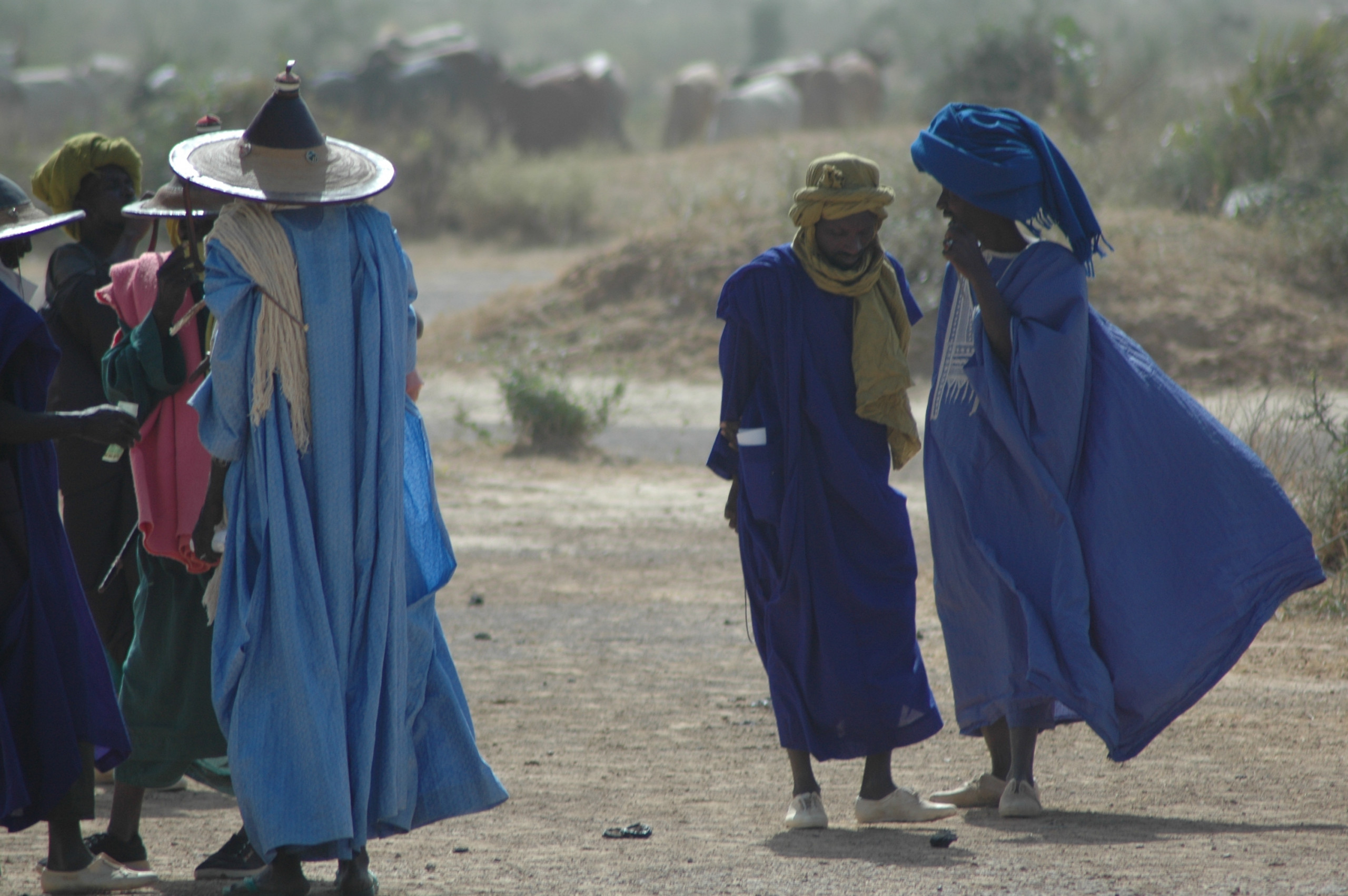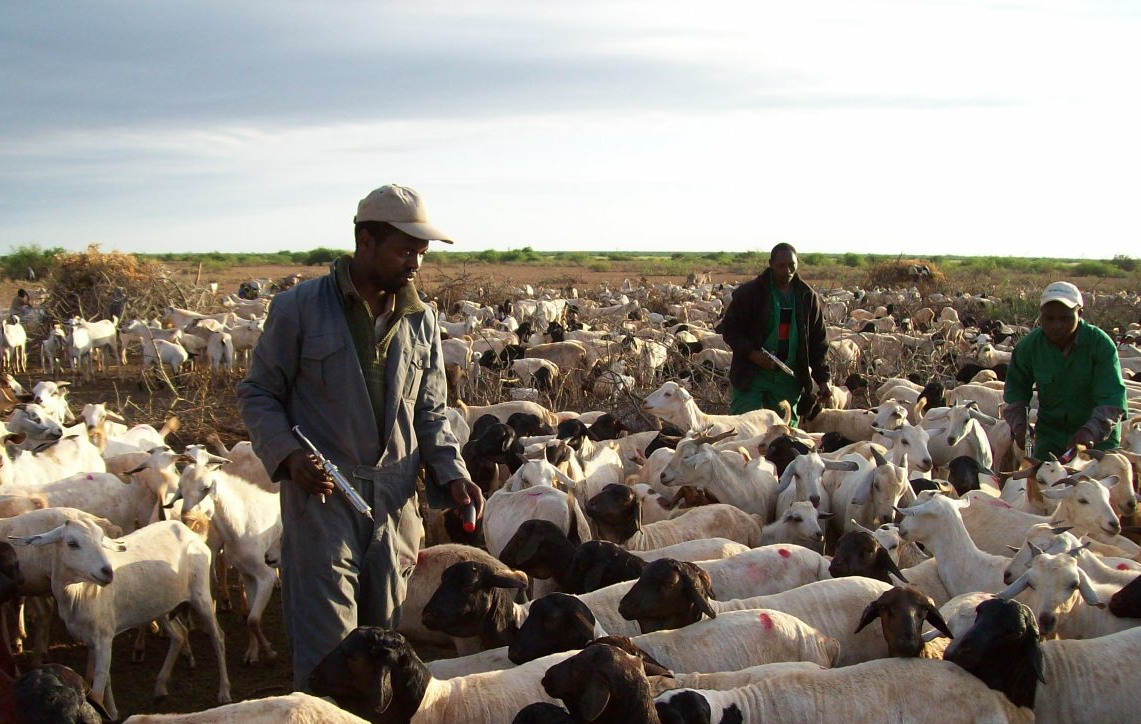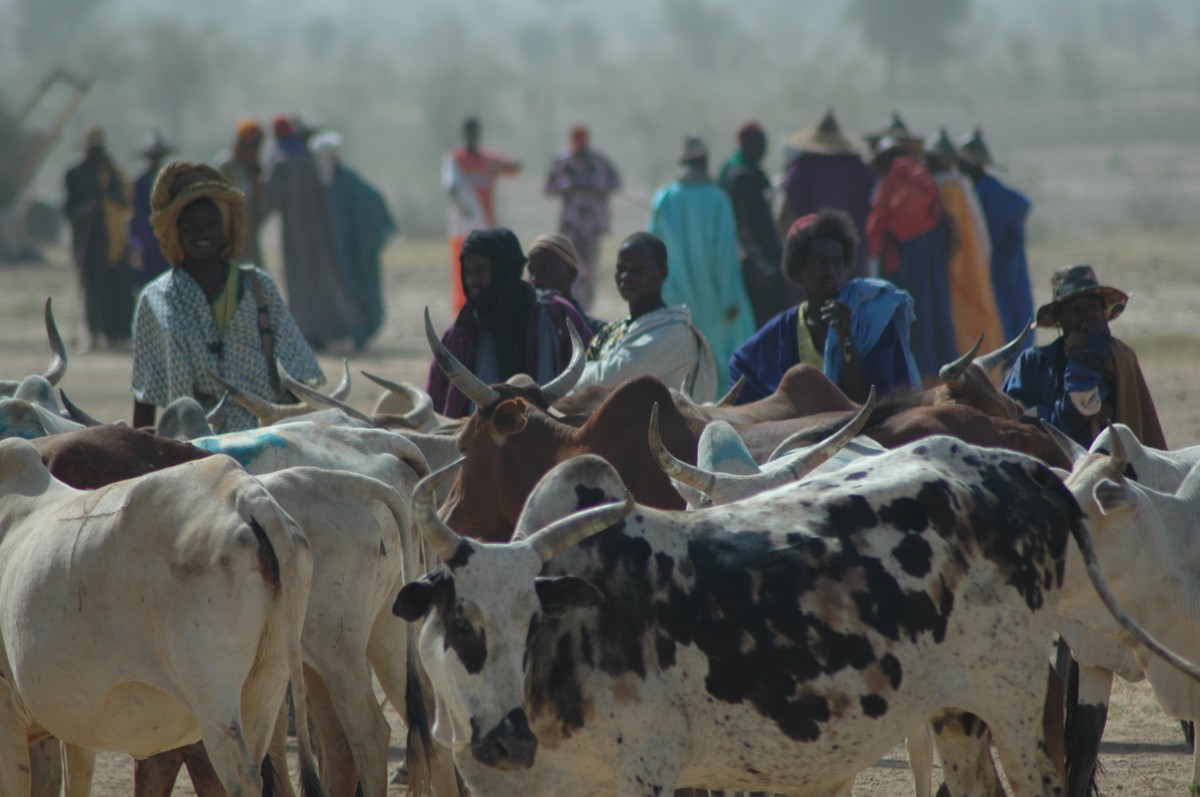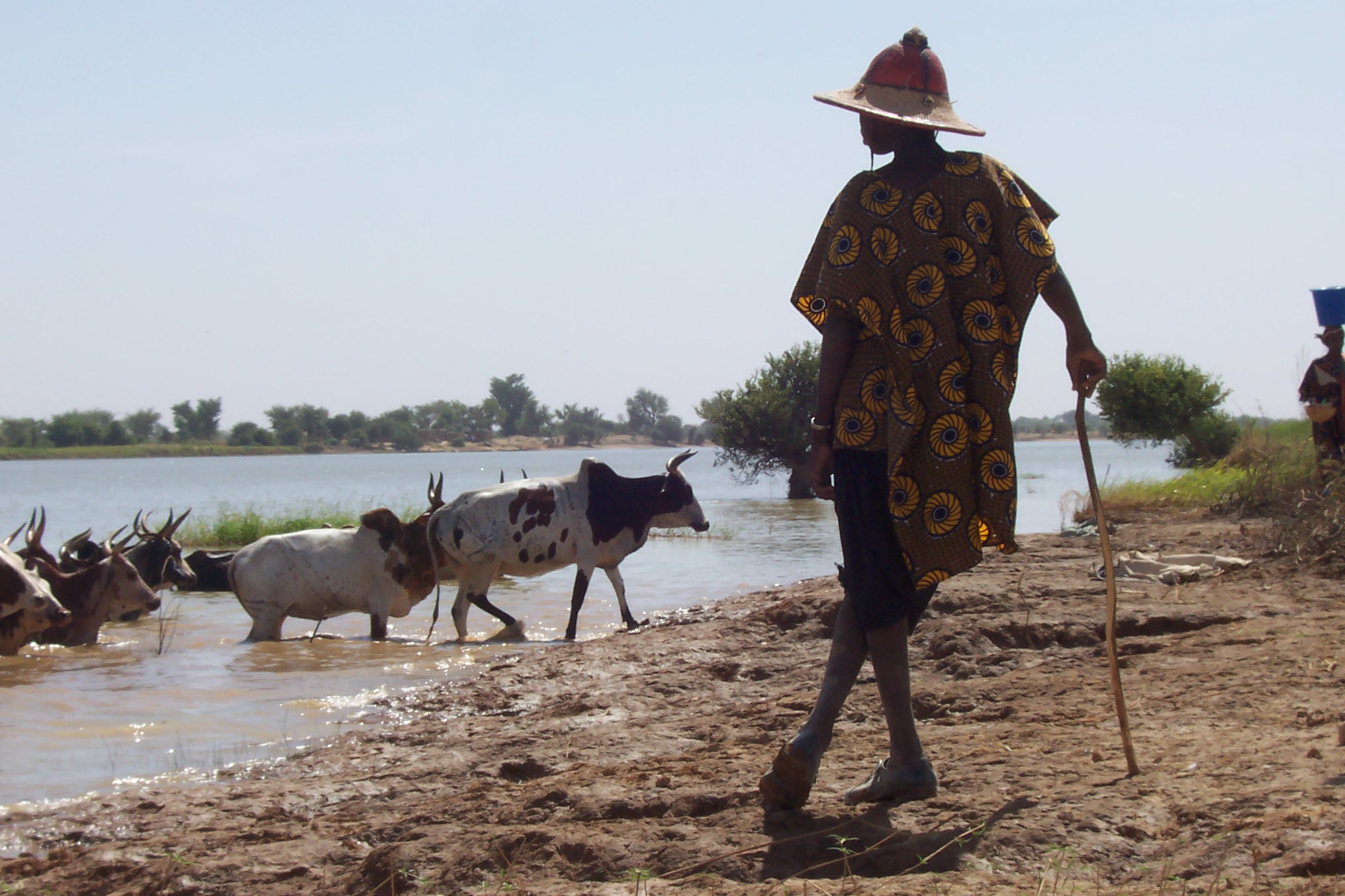
Animal vaccination plays an important role in animal health management. Prevention is vital in protecting against disease transmission and securing livelihoods. As we commemorate the World Immunisation Week, the World Organisation for Animal Health (OIE) seeks to highlight the progress on some leading peste des petits ruminants (PPR) vaccination projects in Africa.
Around this time of the year, a family of livestock herders from the Sahel will decide where to head next in order to find fresh pastures and water for their animals. Over 20 million people living in this vast semi-arid zone of Africa are semi-nomads, farming and raising livestock in a system of transhumance. This system is probably the most sustainable way of utilizing the Sahel and its temporarily available forage resources according to the seasons. In a region that is heavily impacted by climate change, healthy animals that tolerate climate extremes and poor-quality forage, can act as buffers for income during climate shocks such as drought.
But, unfortunately, animal diseases threaten this way of life.
Several countries across the Sahel region are considered the quintessential cradle of peste des petits ruminants (PPR), a highly contagious disease of sheep and goats. PPR induces heavy drops in production and high mortality in animals. Such significant losses directly reduce household incomes and impact on the resilience of pastoral families, which are a critical part of the Sahelian economy
While efficient PPR vaccines are available and can provide life-long protective immunity against this disease, the vaccination rates were very low in the Sahel region. This could be largely attributed to the fact that some countries had no initial experience with small ruminant disease control.
GF-TADs Africa
That is why, in 2013, a PPR vaccine bank for Africa was established by the OIE for the provision of high quality vaccines to eligible countries in the region. This bank ensures that access to quality vaccines remains a priority and is guaranteed when beneficiary countries decide to fund animal disease control programmes and implement them efficiently. Funding support has been provided by the Bill & Melinda Gates Foundation, and also by the World Bank through the Regional Sahel Pastoralism Support Project (PRAPS) established in 2015. This project aims to improve access to markets and essential services in selected areas of six Sahelian countries (Burkina Faso, Chad, Mali, Mauritania, Niger and Senegal), where more than 75% of the livestock sector is based on transhumant or nomadic pastoralism.
The 1st phase of the OIE vaccine bank programme, initiated in 2013, has focused on governance, economic viability, and resilience of pastoral systems for the region.
Prof. Idriss Oumar Alfaroukh, Regional Coordinator for PRAPS at the OIE Regional Representation for Africa.
The OIE has now commenced the 2nd phase of the PPR vaccine bank for an initial four-year period (2022 to 2025) to support Members in achieving the global goal of PPR eradication by 2030 through provision and access of quality vaccines.
The strong commitment of the World Organisation for Animal Health (OIE) and its partners to mobilise ambitious efforts for pastoralism through the PRAPS interventions was supported by the Heads of States and Governments of the six Sahel Member countries at the Nouakchott Declaration.
Prof. Idriss Oumar Alfaroukh, Regional Coordinator for PRAPS at the OIE Regional Representation for Africa.




